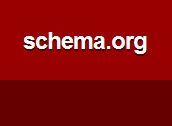Search giants unveil semantic vocab
But does Schema.org threaten to overshadow open standards?

Google, Yahoo and Bing have jointly unveiled a new vocabulary for the web that provides a standardised way to markup content so that it can be interpreted by search engines.
Sites that use Schema.org will get preferential treatment in the search results.
Unsurprisingly, this has tread on a few toes because the open standards community has been working on open semantic markup standards for years, and was not consulted about this. The main complaint is that this move enables the search giants to control the markup that's used on the web, instead of allowing people to choose what works best for them.
Goodbye microformats?
Schema.org makes use of microdata, but not microformats or RDFa — both popular open standards for marking up content. One of the most prominent uses of microformats to date is Google's Rich Snippets, which display extra information in search listings such as the average star rating that a restaurant has received.
We're told at this stage that support for microformats and RDFa isn't being dropped, but it's likely that a switch to microdata will be required if a site is to remain competitive in the listings.
Dev backlash
Open standards guru Tantek Celik is strongly against the move. "Schema.org is essentially an attempt by Google and Microsoft to dictate how we should add more meaning to the HTML that is published on the web," he told us.
"It's a subversion of every open standards community and process that has been working on this for years. It's also an undercutting of efforts by numerous individuals at both companies that already work openly in various open standards communities to develop such standards.
"It's probably the worst thing we've seen happen in the world of open standards development since the 1990s."
Google response
In response, a Google spokesperson told us: "Currently, there are many standards and schemas for marking up different types of information on web pages. As a result, it’s difficult for webmasters to decide on the most relevant and supported markup standards to use.
“Creating a schema supported by all the major search engines makes it easier for webmasters to add markup, which makes it easier for search engines to create rich search features for users."
Manu Sporny of the World Wide Web Consortium summarises the situation at
manu.sporny.org/2011/false-choice/, and you can read a transcript of a heated discussion between various interested parties at www.w3.org/2011/06/semtech-bof-notes.html.
Get the Creative Bloq Newsletter
Daily design news, reviews, how-tos and more, as picked by the editors.

Thank you for reading 5 articles this month* Join now for unlimited access
Enjoy your first month for just £1 / $1 / €1
*Read 5 free articles per month without a subscription

Join now for unlimited access
Try first month for just £1 / $1 / €1

The Creative Bloq team is made up of a group of art and design enthusiasts, and has changed and evolved since Creative Bloq began back in 2012. The current website team consists of eight full-time members of staff: Editor Georgia Coggan, Deputy Editor Rosie Hilder, Ecommerce Editor Beren Neale, Senior News Editor Daniel Piper, Editor, Digital Art and 3D Ian Dean, Tech Reviews Editor Erlingur Einarsson, Ecommerce Writer Beth Nicholls and Staff Writer Natalie Fear, as well as a roster of freelancers from around the world. The ImagineFX magazine team also pitch in, ensuring that content from leading digital art publication ImagineFX is represented on Creative Bloq.
